The Civil War and Reconstruction
History
Anaconda Plan

An Union Army strategy for suppressing the Confederacy. Anaconda Plan. The Anaconda Plan was a Union strategy to blockade Southern ports and control the Mississippi River to squeeze the Confederacy economically and militarily.
Andrew Johnson
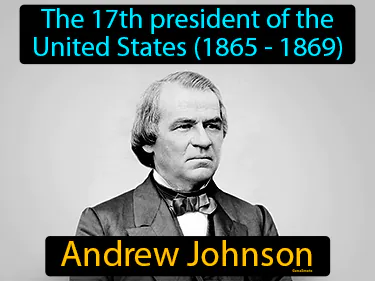
The 17th president of the United States 1865 - 1869, Andrew Johnson. Andrew Johnson became president after Abraham Lincoln was assassinated and is known for his approach to Reconstruction after the Civil War.
black codes
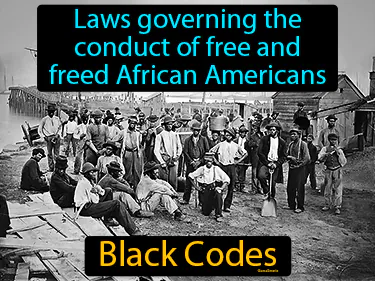
Laws governing the conduct of free and freed African Americans. Black codes. Black codes were laws in the Southern U.S. that restricted the rights and freedoms of African Americans after the Civil War.
blockade
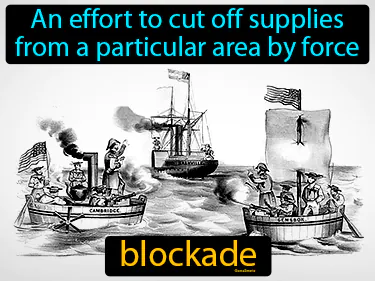
An effort to cut off supplies from a particular area by force. Blockade. In history, a blockade is a military strategy used to isolate an enemy's area to prevent goods and supplies from entering or leaving.
Civil War
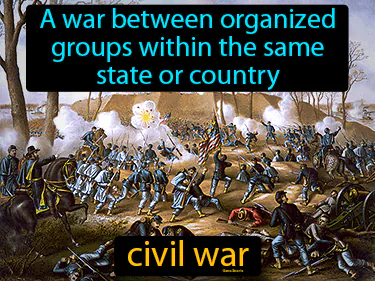
A war between organized groups within the same state or country. Civil War. A Civil War is a conflict where factions within a country fight against each other for control or independence.
civilian
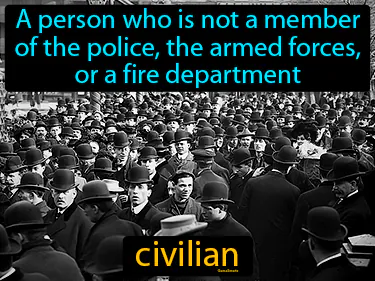
A person who is not a member of the police, the armed forces, or a fire department is a civilian. Throughout history, civilians are the everyday people not engaged in military or emergency services.
Clara Barton
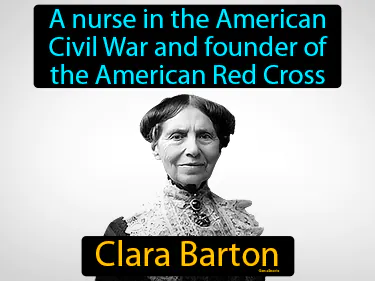
A nurse in the American Civil War and founder of the American Red Cross. Clara Barton. She was a pioneering humanitarian who helped soldiers and started an organization that provides emergency assistance.
draft

The compulsory enlistment of people in military service. Draft. The draft is a system where the government requires individuals to join the military, often used during major wars like World War II.
Emancipation Proclamation
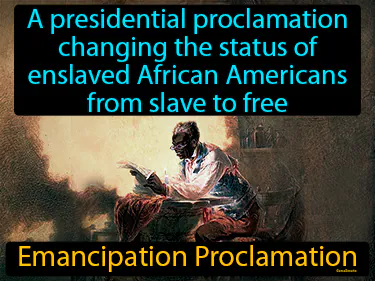
A presidential proclamation changing the status of enslaved African Americans from slave to free. Emancipation Proclamation. The Emancipation Proclamation was an order by President Lincoln in 1863 that declared slaves in Confederate states to be free.
Fifteenth Amendment
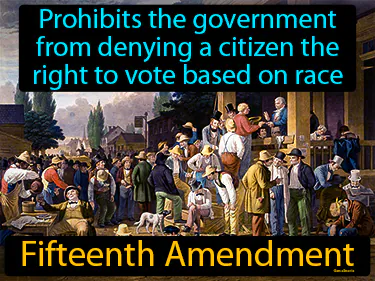
Prohibits the government from denying a citizen the right to vote based on race or color. Fifteenth Amendment. The Fifteenth Amendment, adopted in 1870, gave African American men the right to vote in the United States.
Fourteenth Amendment
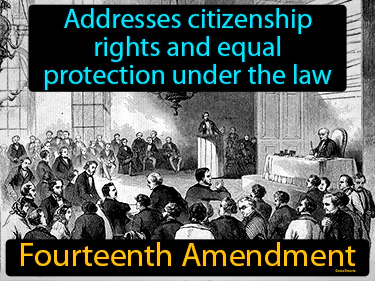
Addresses citizenship rights and equal protection under the law. Fourteenth Amendment. The Fourteenth Amendment is a change to the U.S. Constitution that ensures everyone born in the United States has the same rights and legal protections.
Freedmens Bureau
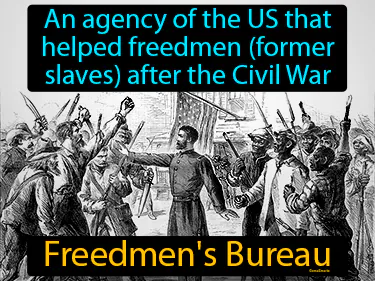
An agency of the US that helped freedmen former slaves after the Civil War. Freedmen's Bureau. It was a government agency that provided assistance, such as education and housing, to former slaves after the Civil War.
George Meade
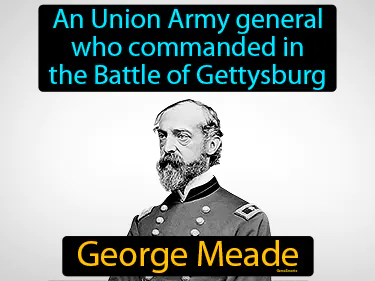
An Union Army general who commanded in the Battle of Gettysburg. George Meade. George Meade was a Union general who led his troops to victory at the Battle of Gettysburg during the American Civil War.
George Pickett
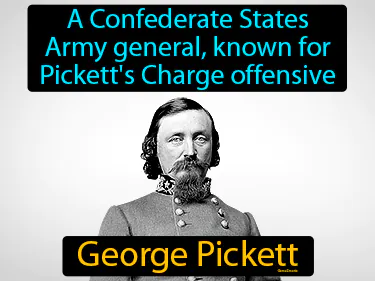
A Confederate States Army general, known for Pickett's Charge offensive. George Pickett. George Pickett was a general famous for leading a disastrous attack at the Battle of Gettysburg during the American Civil War.
Gettysburg Address
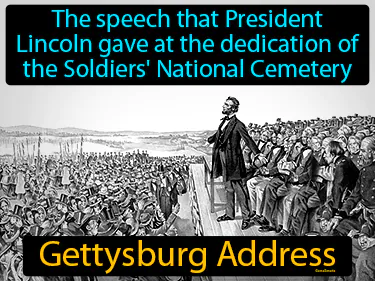
The speech that President Lincoln gave at the dedication of the Soldiers' National Cemetery. Gettysburg Address. The Gettysburg Address is a famous speech by President Abraham Lincoln during the American Civil War, emphasizing the principles of equality and national unity.
Hiram Revels
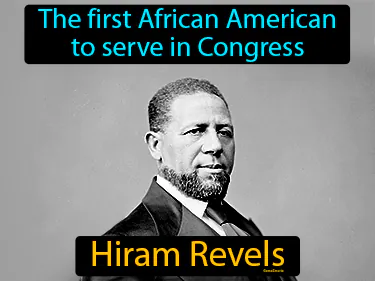
The first African American to serve in Congress. Hiram Revels. He was a U.S. Senator from Mississippi during the Reconstruction era.
impeachment
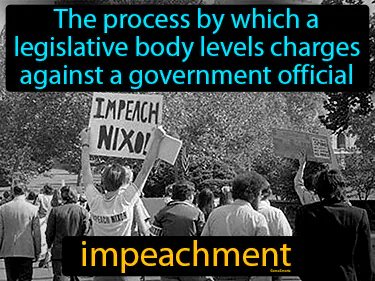
The process by which a legislature's lower house brings charges against a government official impeachment. Impeachment is when a government official is accused of wrongdoing and put on trial to decide if they should be removed from office.
Jim Crow laws
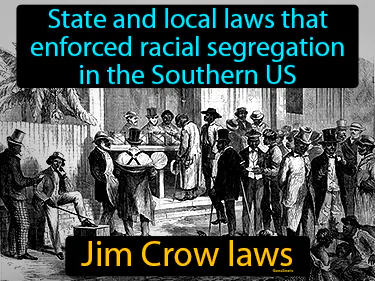
Laws that enforced racial segregation in Southern states. Jim Crow laws. Jim Crow laws were rules that kept Black and white people separated in public places, making life unfair for Black people in the U.S. South.
Mary Ann Bickerdyke

A hospital administrator for Union soldiers who founded 300 field hospitals. Mary Ann Bickerdyke. She was a key figure in improving medical care for soldiers during the American Civil War.
Reconstruction
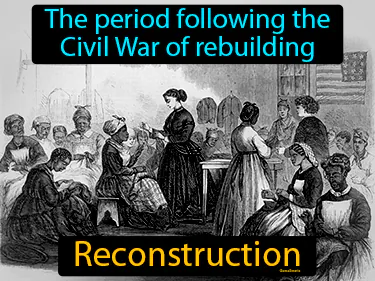
The period following the Civil War of rebuilding. Reconstruction. Reconstruction was the time after the Civil War when the United States worked to rebuild the Southern states and integrate formerly enslaved people into society.
Robert E Lee
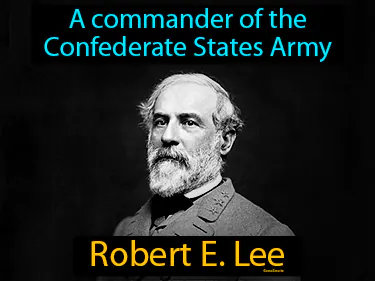
A commander of the Confederate States Army. Robert E. Lee. He was a general during the American Civil War, leading the Southern forces.
Sally Tompkins

A nurse for Confederate Army who privately sponsored a hospital in Richmond. Sally Tompkins. She was the only female commissioned officer in the Confederate Army and ran a highly successful hospital during the Civil War.
segregation

Separation of people into racial or other ethnic groups in daily life. Segregation. Segregation was a practice, especially in the United States, where people of different races were kept apart in public places, schools, and housing.
sharecropping
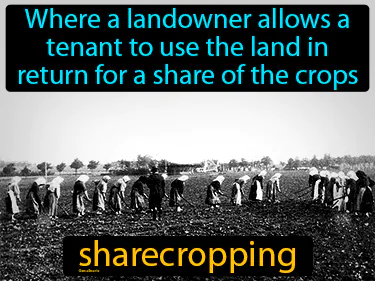
Where a landowner allows a tenant to use the land in return for a share of the crops. Sharecropping. Sharecropping was a system used after the Civil War where freed slaves and poor farmers worked land owned by others for a share of the crops.
Stonewall Jackson
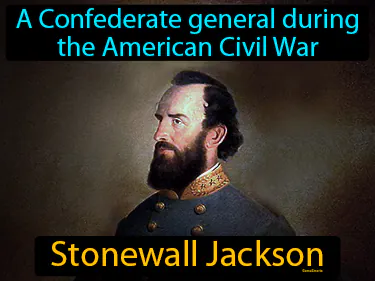
Stonewall Jackson a Confederate general during the American Civil War. He was known for his skilled and bold tactics in battle.
Thirteenth Amendment
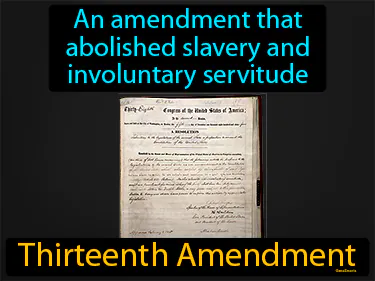
An amendment that abolished slavery and involuntary servitude. Thirteenth Amendment. It is a change to the U.S. Constitution that ended slavery in America.
total war
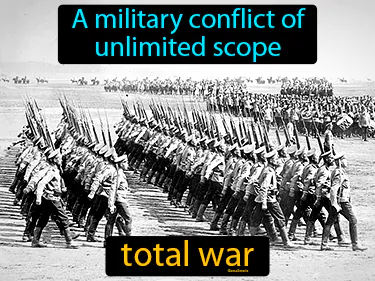
A war that is unrestricted of the territory or combatants involved. Total war. In history, total war refers to conflicts where nations use all resources and means, affecting civilians and soldiers alike, to achieve complete victory.
Ulysses S Grant
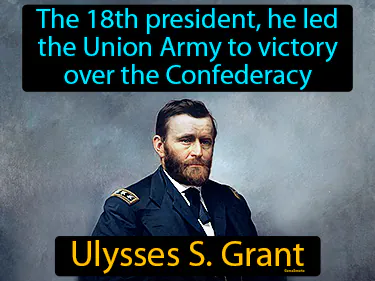
The 18th president, he led the Union Army to victory over the Confederacy. Ulysses S. Grant. He was a key military leader during the American Civil War and later became President of the United States.
William Tecumseh Sherman
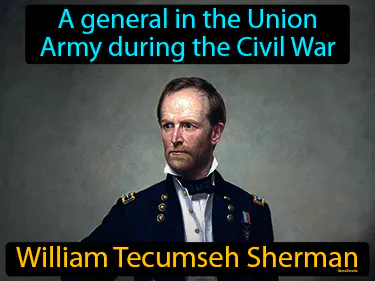
A general in the Union Army during the Civil War, William Tecumseh Sherman. He was an important leader known for his "March to the Sea," which helped defeat the Confederacy.
Winfield Scott

An US Army general who developed a strategy known as the Anaconda Plan. Winfield Scott. He was a key military leader for the Union during the early years of the Civil War.